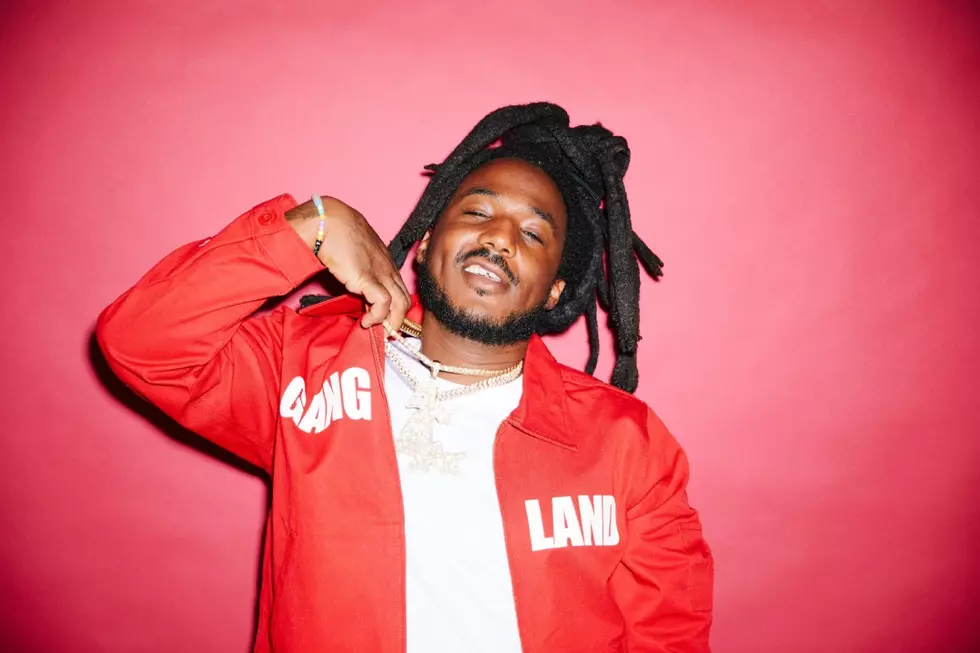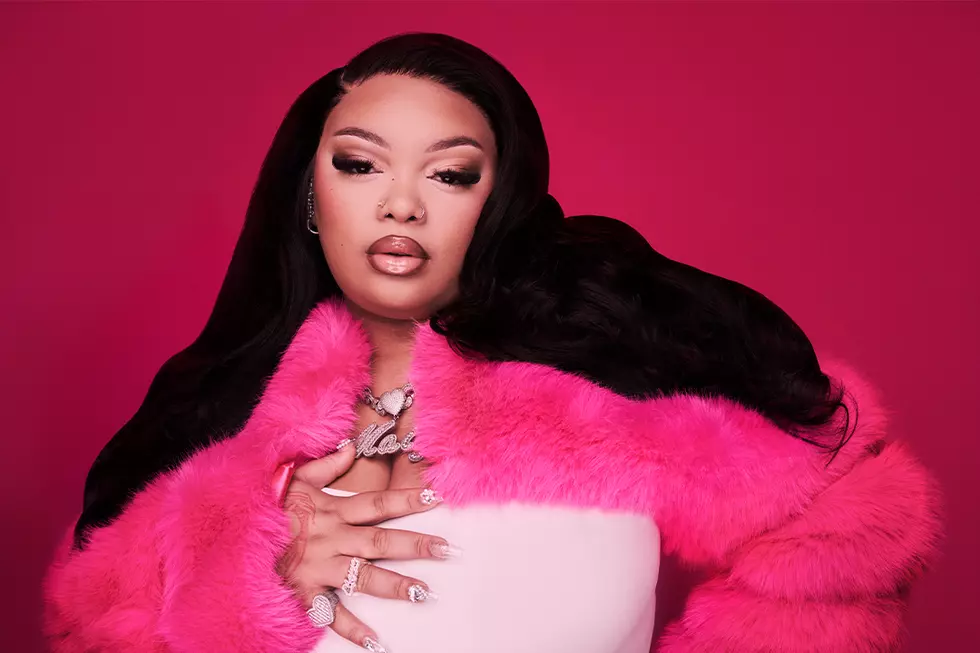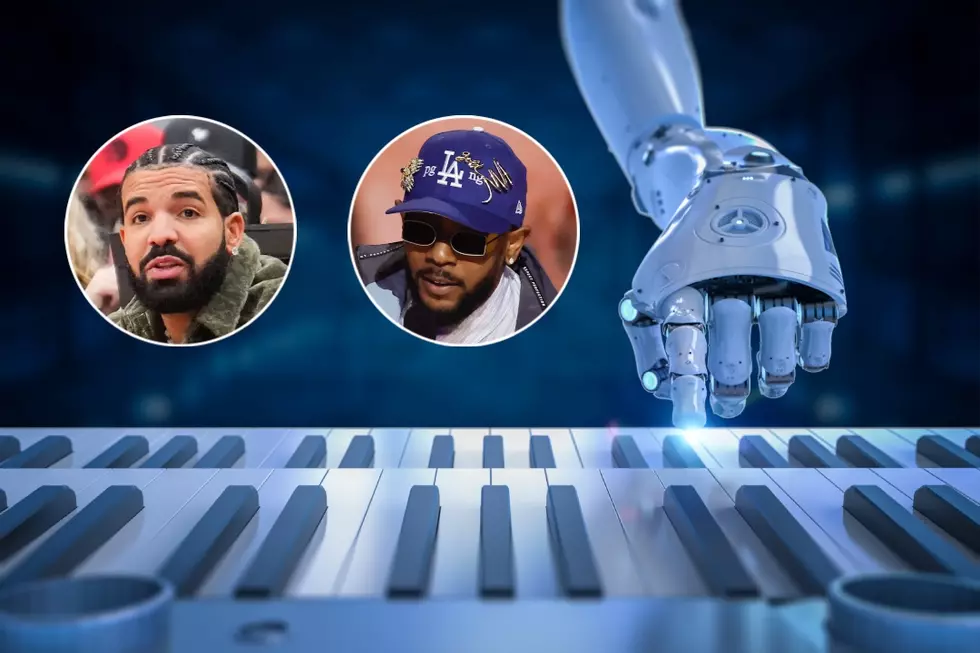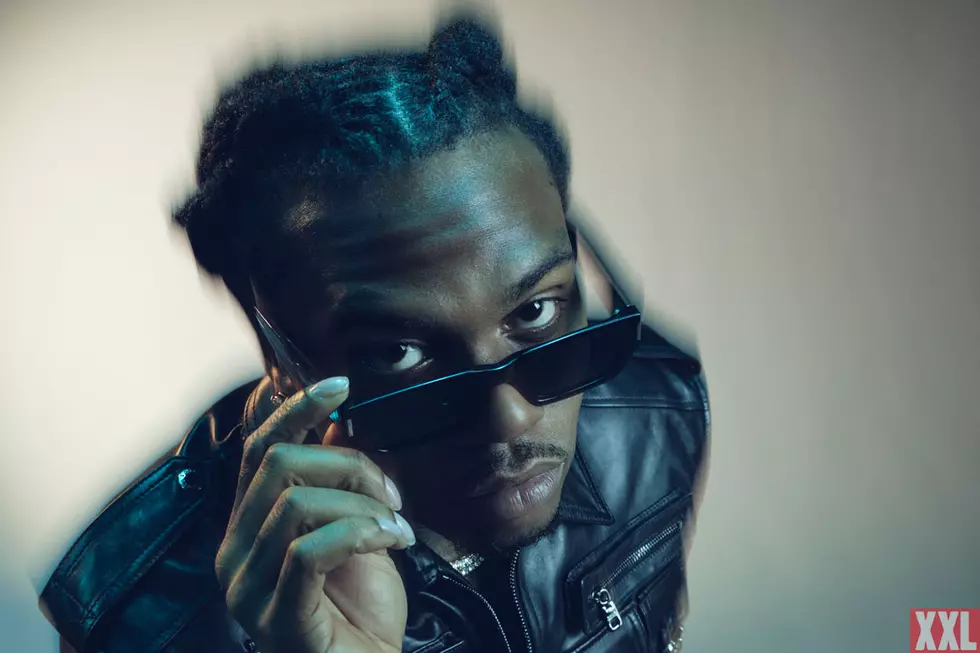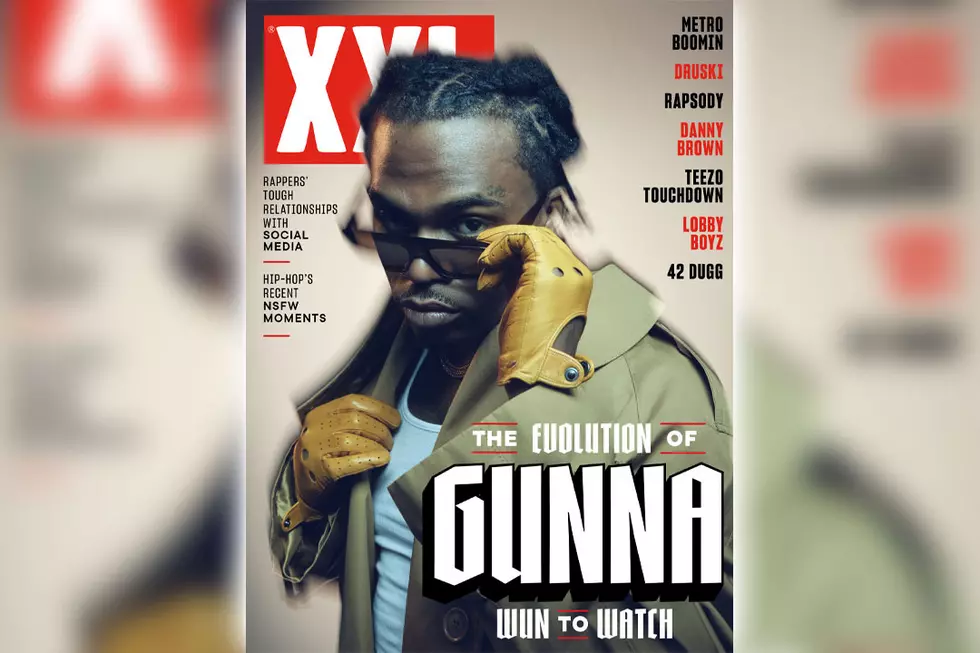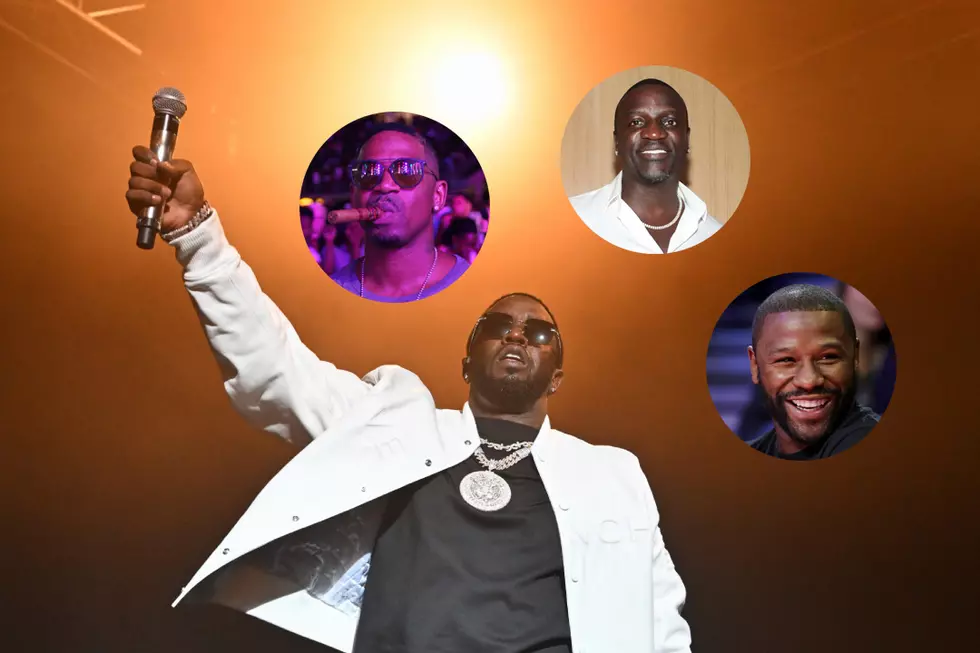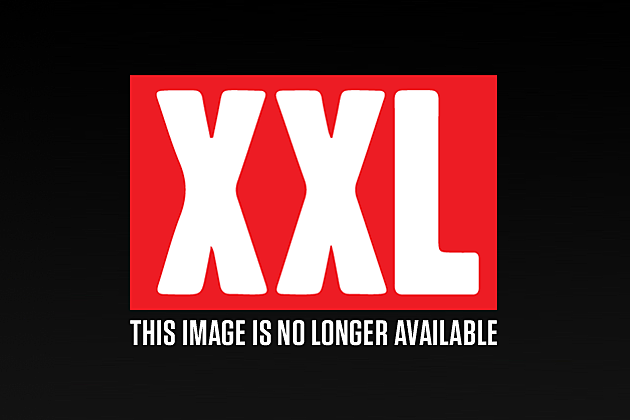
Chicago Gets Shine In Two New Documentaries, ‘Chiraq’ And ‘The Field’
"We're in the Windy City, Chicago, home of deep dish pizza, the Bears, and the highest murder rate in America," goes the opening line to Chiraq, Noisey's new eight-part documentary on Chicago and its burgeoning music scene, the first episode of which premiered earlier today. "Chicago is also the home to drill music, brand new rap made by teenagers about killing people."
If the music hadn't already caught your attention, an opening line like that will; it doubles as an immediate attention-grabber and the main reason why two documentaries surfaced this month surrounding Chicago's embattled streets and the violent, high-energy music scene that has emerged from it. Both The Field, a 40-minute doc produced by WorldStarHipHop that debuted January 7, and Chiraq delve into the streets of Chicago by going straight to the source of that energy: namely, artists such as Chief Keef, Lil Durk, Lil Reese and Young Chop, four of the biggest names in the drill music scene that have pushed their sound from the four-block radius where they grew up into a national phenomenon while living with the daily threat of violence that comes with growing up in neighborhoods consumed by gang violence.

"These kids live in this position: their lives are on the line, they're very talented, they have great rhyme skills as far as putting songs together," says Q Worldstar, executive producer of The Field. "I feel that there is a better light for them if they continue to work hard and keep the negative away, but it's hard when you live in those conditions."
The documentaries don't shy from those conditions. The opening episode of Chiraq tells, in part, the story of eighteen-year-old Lil Jojo, a rapper who was murdered on the street hours after uploading a video showing him taunting Lil Reese from a car; two of the rappers interviewed for The Field, L'A Capone (17 years old) and J-Money (21 years old), both associates of Lil Durk, were murdered before the documentary was finished. "Durk and those guys, they were really born into this environment where all they know is that their arch-rivals are a couple blocks away and that's what they have to deal with right now," says Mandon Lovett, director of The Field. "They know the history, but the history doesn't really affect the dangers that they experience on a daily basis. They're just worried about getting through the day and getting to the next day."
"The title Chiraq was bestowed upon us by the artists; I didn't come up with that," says Andy Capper, director of Chiraq, talking about the city's nickname which has been embraced and promoted by just about every artist in the scene. "There's a lot of talk about guns and gangs out there, and that makes them feel like they're in Iraq... I don't think it's glamorous; does anybody think that Iraq is glamorous? You must be pretty crazy to think that."
As the media and the record industry have descended upon the scene, stars are being molded and alarm bells have started ringing; Durk and Reese have signed deals with Def Jam, Keef has gone with Interscope and Young Chop signed on the dotted line for Warner Bros., while much of the violence and poverty continues. The Field spends a significant amount of time highlighting Rhymefest and the CeaseFire organization—one of the local community groups trying to help inner city kids—as they attempt to channel the anger and hopelessness of the streets towards positive projects. Chiraq shines a light on many of the different aspects of the music scene that are not getting as much attention as Keef and the GBE boys, such as the SaveMoney clique, which hates the term "Chiraq," and the rap groups emerging from the Gangster Disciples, the rival gang to Keef and Durk's Black Disciples.
Taken together, the two documentaries provide a full view of the city and its many issues, scenes and systemic failures. In separate interviews, XXL spoke to directors Capper and Lovett and The Field executive producer Q to find out what they learned while making these documentaries and where the city might be headed next. —Dan Rys (@danrys)
What made you want to document Chicago?
Q [Executive Producer, The Field]: We figured it's great to go out there and tell a story about what's really going down. A lot of media outlets pretty much just show what's happening, but they don't show what made that happen, what people are actually going through and talk to the people out there living these streets. We just wanted to tell the true story of it.
Andy Capper [Director, Chiraq]: I've always been a hardcore punk kid, and I think the energy of their songs were really attractive to my ears. And then when I looked into why these kids were making music that was so apocalyptic and crazy—when you look into that back story with all that—no one had really delved into that. The movement behind it all.
Mandon Lovett [Director, The Field]: A couple years ago I heard what was going on in Chicago with the drill scene, and I think I saw the Chief Keef "Don't Like" video. There was something about the energy that came across in that video that made me want to know more about that scene and what was going on in the city.
What were some of the most surprising things you came across while making it?
Q: The people there were graceful, they were happy to be talking in front of the camera, and tell their side of the story. The Rhymefest organization [CeaseFire], that was a big plus to us for giving awareness to his organization. Seeing these people knowing that their life could be shortened at any moment, all carrying straps... It's like Chiraq, as it's called. They gotta protect themselves; that's the mentality, protect themselves.
Andy Capper: I guess how big it is in Chicago. The attention that Durk got while walking down the street, or Young Chop walking down the street, people recognize those kids. People are pretty up front. Not to generalize anyone, but things easily blow up over nothing, so it's advisable to quickly get everything on the table and sort things through before a little nothing gets blown up into something huge. But yeah, I was surprised by how all the stories you hear about Keef and Fredo and how scary you can look to people, it's really a separate energy around them, almost like a pop star energy around them.
Mandon Lovett: The biggest surprise to me was how critical the situation is in Chicago with the gang warfare that's going on right now. When we were filming a lot of the interviews, it was important to us to film them on the street; we didn't really want to interview artists in a studio, or a typical, behind-the-scenes backdrop. So one thing we noticed was how paranoid the people we were interviewing were. They're always looking around, always looking over their shoulders, looking over our shoulders; there's a heightened sense of awareness. You realize how close their rival gangs are to them; they're only a few blocks away. And you really start to understand the severity of the situation.
Do you think the attention from both the media and the music industry has helped or hurt what's going on there?
Q: I think it helps, because these kids, that's what they dream about, getting out of the 'hood and getting out of that environment. They look at playing sports or being an artist as a way out. Truthfully, I wish education could be their way out and not just the sports or rapper route, but I feel like the education system in not great there, and they feel like their only way out is the shortcut route, which is the entertainment world. I don't suggest it, but I just feel like it definitely gives them a job, it helps them out, it may help them go back to their communities and help each other out.
Andy Capper: It reminds me of when Snoop and Dre first started, and you had this journalism that came from the street; you'd find out what actually happened in the streets of Long Beach or Compton from Snoop or Dre. And here—while maybe lyrically it's not as sophisticated as Snoop and them—you're definitely getting the same kind of journalism from those areas, and you get to find out about the world of Chief Keef, Durk, Fredo. They're shining a light on the culture there. You can't single out them in light of the huge systemic problems in Chicago; they're a reflection of those problems.
Mandon Lovett: It's interesting, because I think that's a story that remains to be told. I think it would be interesting to see what Lil Durk raps about three or four years from now, when hopefully he and his family are out of Chicago in a safer place, and who knows what. But it is true that the artists who are gang affiliates use music as a way to communicate. I think that these guys did it this way before the record labels and all the attention came to Chicago, and who knows how long it's gonna be there.
What was your personal take on everything happening?
Q: It just made me feel like I want to do more documentaries all over the country and all over the world. The truth always hurts, and no one likes to see it, but we like putting things right in people's faces and let people know that, these things are happening in our communities and we can't keep sweeping them under the rug.
Andy Capper: It seems hard to fix. The segregation is so crazy; the segregation is crazy. I feel like guns are pretty easy to get, and I feel those communities that are disinfranchised... The people of Chicago are super resilient; what can you do? I don't know. I get paid to go in there and film it and show people what it's like, what the people are like. If people start talking about it, then that's good. That's a start.
Mandon Lovett: I realized that these are just kids, and they have the same hopes, dreams, fears and realities that a lot of us had growing up in our teenage years, but they just happened to be born in this environment that was drastically different and an extremely violent place. You might have whatever affiliations that Durk might have, but at the end of the day he's just a 21-year-old kid trying to do something better for his family.
Realistically, what do you see as the future for Chicago and the Chicago music scene in the next couple of years?
Q: I think it's gonna grow. The Chicago music scene is here to stay. Lil Durk, Lil Reese, these guys are definitely growing up and their crews are expanding. I think at the end of the day we all want peace, but they feel like they have to protect themselves in case that one person don't see peace. So I get it why they carry these guns; we don't know the mentality for them compared to us. So I understand somewhat, but I feel like there has to be a ceasefire, put the guns down, because they're just hurting each other, hurting their families.
Andy Capper: I think the scene is just going to get bigger, and more artists are going to come out of it. The energy of Chicago—look at the most famous person in the world—he's very much from Chicago—Kanye West. I hope all these kids continue and have long, successful musical careers; there's a lot of raw talent there. And the sound—Chop says in one episode, nobody taught them how to do this, they just did it all on their own, the sound. That'll be iconic for a while.
Mandon Lovett: I don't know what the future of the music will be. The sound really marks this time period. To me, their music is really what punk rock was in the '80s; it's like pain and angst and being rebellious. I think there are certain artists, like Durk, who have a crossover mainstream appeal. But I think the drill sound will always be there as the sound of Chicago. It's my hope that, at least, this will serve as a marker in time for this current moment.
More From XXL


